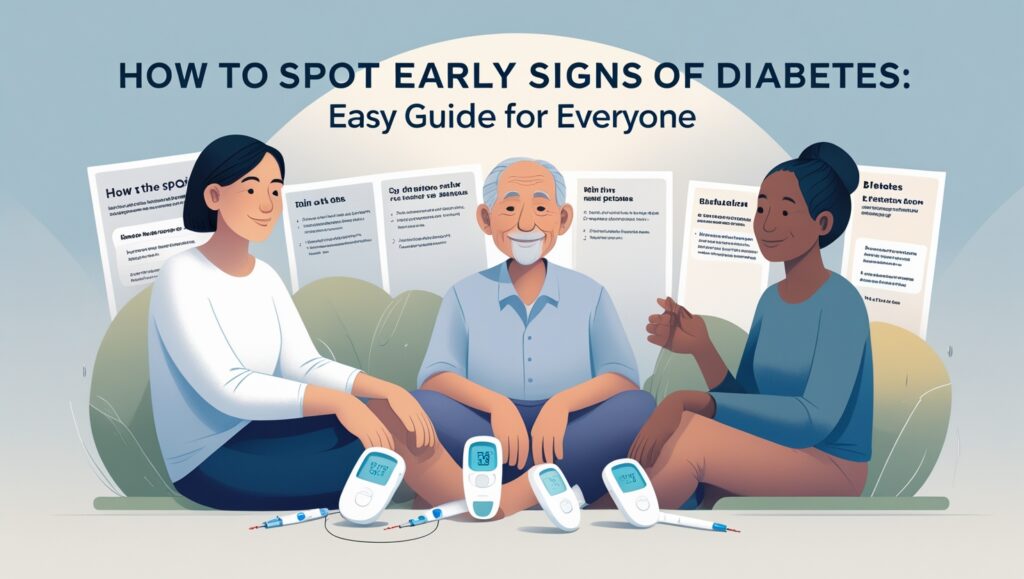10 Signs of Stress and How to Manage
Stress is an inevitable part of life, but if left unmanaged, it can take a significant toll on your physical and mental health. Recognizing the signs of stress early can help you address it effectively and maintain a balanced life. This article explores the top 10 signs of stress and provides actionable strategies to manage them.

1. Physical Symptoms
Stress often manifests through physical symptoms such as headaches, muscle tension, and fatigue. These symptoms occur because your body is in a constant state of fight-or-flight mode.
How to Manage:
- Practice relaxation techniques like deep breathing and progressive muscle relaxation.
- Incorporate regular physical activity to release built-up tension.
- Maintain a healthy diet to support your body during stressful periods.
2. Emotional Distress
Feeling overwhelmed, irritable, or anxious are common emotional signs of stress. You may notice mood swings or difficulty finding joy in activities you once enjoyed.
How to Manage:
- Engage in mindfulness practices such as meditation.
- Talk to a trusted friend or therapist about your feelings.
- Schedule time for hobbies and activities that bring you happiness.
3. Cognitive Impairments
Stress can impair your ability to concentrate, make decisions, and remember things. This mental fog can hinder productivity and exacerbate stress further.
How to Manage:
- Break tasks into smaller, manageable steps to avoid feeling overwhelmed.
- Practice time management techniques like prioritizing and scheduling.
- Take regular breaks to reset your focus.
4. Changes in Sleep Patterns
Stress often disrupts sleep, leading to insomnia or excessive sleeping. This can create a vicious cycle, as poor sleep increases stress levels.
How to Manage:
- Establish a consistent sleep schedule.
- Create a relaxing bedtime routine free from screens and heavy meals.
- Use calming techniques such as a warm bath or herbal tea before bed.
5. Digestive Issues
Chronic stress can lead to stomachaches, nausea, or changes in appetite. Stress affects the digestive system by altering gut-brain communication.
How to Manage:
- Eat small, balanced meals throughout the day to avoid overloading your digestive system.
- Avoid excessive caffeine and alcohol, which can aggravate symptoms.
- Try yoga or tai chi to support digestion and reduce stress.
6. Social Withdrawal
When stressed, some people isolate themselves, avoiding social interactions and withdrawing from loved ones.
How to Manage:
- Reach out to close friends or family members for support.
- Join a community group or engage in social activities you enjoy.
- Consider professional counseling if social withdrawal persists.
7. Increased Reliance on Unhealthy Coping Mechanisms
Stress can lead to unhealthy habits like overeating, smoking, or excessive drinking. While these may offer temporary relief, they exacerbate stress in the long run.
How to Manage:
- Identify triggers that lead to these behaviors.
- Replace unhealthy habits with positive ones, like exercise or creative activities.
- Seek help from support groups or professionals if necessary.
8. Frequent Illness
Chronic stress weakens the immune system, making you more susceptible to colds, infections, and other illnesses.
How to Manage:
- Prioritize self-care through regular exercise, balanced nutrition, and sufficient sleep.
- Take steps to boost your immune system, such as consuming vitamin-rich foods.
- Incorporate stress-relief practices like mindfulness and gratitude journaling.
9. Reduced Productivity
Stress can sap your energy and motivation, leading to decreased productivity and performance at work or school.
How to Manage:
- Set realistic goals and delegate tasks when possible.
- Use productivity tools like planners or apps to stay organized.
- Take short, frequent breaks to recharge during tasks.
10. Unexplained Aches and Pains
Stress can manifest as unexplained physical discomfort, such as back pain, chest tightness, or jaw clenching.
How to Manage:
- Practice regular stretching and relaxation exercises.
- Consider therapeutic treatments like massage or acupuncture.
- Address the underlying stressors causing these symptoms.
How to Prevent Stress
While it’s impossible to eliminate stress entirely, proactive measures can help minimize its impact:
- Stay Active: Engage in regular physical activity to improve mood and resilience.
- Practice Gratitude: Focus on positive aspects of your life to counteract stress.
- Maintain Connections: Build strong relationships and seek support when needed.
- Stay Organized: Keep your environment tidy and manage your time effectively.
- Learn Relaxation Techniques: Explore meditation, yoga, or deep-breathing exercises.
Symptoms of Stress in Women
Stress is a natural part of life, but when it becomes chronic or overwhelming, it can significantly impact physical, emotional, and mental health. Women, in particular, may experience stress symptoms that are unique or more pronounced due to biological, hormonal, and societal factors. Recognizing these symptoms is the first step toward managing and alleviating stress effectively.
Physical Symptoms
- Headaches and Migraines: Many women report frequent tension headaches or migraines during periods of stress.
- Fatigue: Persistent tiredness, even after adequate rest, can be a sign of chronic stress.
- Muscle Tension: Stress often leads to tightness or pain in the shoulders, neck, or back.
- Digestive Issues: Symptoms such as nausea, bloating, diarrhea, or constipation are common stress-related complaints.
- Sleep Disturbances: Trouble falling asleep, staying asleep, or experiencing restful sleep can be linked to stress.
- Appetite Changes: Stress can lead to overeating or loss of appetite, impacting overall health.
Emotional Symptoms
- Irritability and Mood Swings: Feeling easily annoyed or experiencing sudden changes in mood are common stress indicators.
- Anxiety and Worry: Chronic stress often leads to excessive worrying or feelings of dread.
- Depression: Prolonged stress may contribute to feelings of sadness, hopelessness, or a lack of interest in activities once enjoyed.
- Feeling Overwhelmed: A sense of being unable to cope with responsibilities or challenges is a hallmark of stress.
Cognitive Symptoms
- Difficulty Concentrating: Stress can impair focus and decision-making abilities.
- Memory Problems: Forgetfulness or difficulty retaining information is a common complaint.
- Negative Thought Patterns: Stress can lead to persistent negative thinking or self-doubt.
Behavioral Symptoms
- Social Withdrawal: Avoiding friends, family, or social activities is a sign of stress.
- Unhealthy Coping Mechanisms: Increased use of alcohol, smoking, or overeating may be attempts to manage stress.
- Procrastination: Delaying tasks or feeling paralyzed by decision-making can result from stress.
Hormonal and Menstrual Changes
Stress can disrupt hormonal balance, leading to irregular menstrual cycles, worsened premenstrual symptoms (PMS), or exacerbated menopausal symptoms.
Long-term Effects of Stress
Chronic stress in women can increase the risk of developing serious health conditions, including:
- Cardiovascular diseases
- High blood pressure
- Diabetes
- Autoimmune disorders
Managing Stress
- Practice Mindfulness: Techniques such as meditation, deep breathing, or yoga can help reduce stress levels.
- Regular Exercise: Physical activity is a proven stress reliever.
- Healthy Diet: Eating a balanced diet rich in nutrients supports overall well-being.
- Social Support: Connecting with friends, family, or support groups can alleviate stress.
- Professional Help: Consulting a therapist or counselor can provide coping strategies tailored to individual needs.
Signs You Are Sick From Stress
Stress is an inevitable part of life, but when it becomes chronic, it can significantly impact your physical and mental health. Many people don’t realize that stress can manifest as physical illness, often making it difficult to identify the root cause of their symptoms. Here are some common signs that stress may be taking a toll on your body:
1. Frequent Headaches
Stress often triggers tension headaches or migraines. These headaches typically occur when you are feeling overwhelmed or anxious, and they can range from mild to severe in intensity.
2. Digestive Issues
Stress can disrupt your digestive system, leading to problems like stomach pain, nausea, bloating, diarrhea, or constipation. This happens because stress affects the gut-brain connection, which is crucial for proper digestion.
3. Weakened Immune System
If you find yourself getting sick more often than usual, stress might be to blame. Chronic stress can suppress your immune system, making it harder for your body to fight off infections.
4. Sleep Problems
Stress can make it difficult to fall asleep, stay asleep, or achieve restful sleep. Over time, poor sleep quality can exacerbate stress and create a vicious cycle.
5. Muscle Tension and Pain
Stress often causes your muscles to tighten, leading to chronic pain, particularly in the neck, shoulders, and back. This tension can result in ongoing discomfort and even long-term musculoskeletal issues.
6. Skin Issues
Stress can worsen existing skin conditions like acne, eczema, and psoriasis. It can also cause hives or rashes to appear as your body reacts to elevated cortisol levels.
7. Heart Palpitations
Feeling like your heart is racing or skipping beats can be a sign of stress. While occasional palpitations may not be harmful, persistent episodes warrant medical attention.
8. Changes in Appetite
Stress can lead to overeating or loss of appetite, depending on how your body reacts. These changes can impact your energy levels and overall well-being.
9. Fatigue
Chronic stress drains your energy, leaving you feeling physically and emotionally exhausted. This fatigue may persist even after a full night’s sleep.
10. Emotional Changes
Stress can cause irritability, anxiety, depression, or mood swings. These emotional shifts are often accompanied by physical symptoms, making it harder to manage both.
What You Can Do
If you recognize these signs in yourself, it’s essential to address the root cause of your stress and take proactive steps to manage it. Here are some tips:
- Practice relaxation techniques: Try mindfulness, deep breathing, or yoga.
- Maintain a healthy lifestyle: Eat a balanced diet, exercise regularly, and get enough sleep.
- Seek support: Talk to friends, family, or a mental health professional.
- Set boundaries: Learn to say no and prioritize self-care.
Ignoring the signs of stress-related illness can lead to more serious health problems over time. By taking action early, you can improve your overall health and quality of life.
Understanding Chronic Stress Symptoms
Chronic stress is a prolonged state of mental and physical tension that arises when an individual faces constant stressors over an extended period. Unlike acute stress, which is short-lived and can sometimes be motivating, chronic stress takes a toll on both the body and mind. Understanding its symptoms is crucial for early intervention and effective management.
Physical Symptoms
Chronic stress can manifest in various physical ways. Common symptoms include:
- Headaches: Persistent tension or migraine headaches can result from prolonged stress.
- Digestive Issues: Stress often disrupts the digestive system, causing stomach aches, diarrhea, constipation, or irritable bowel syndrome (IBS).
- Fatigue: A constant state of exhaustion, even after adequate sleep, is a hallmark of chronic stress.
- Muscle Tension: Tightness or pain in the neck, shoulders, and back often occurs due to stress-induced muscle tension.
- Sleep Disturbances: Difficulty falling or staying asleep, as well as waking up feeling unrefreshed, are common.
- Weakened Immune System: Frequent colds or infections may indicate that stress is compromising the immune response.
Emotional Symptoms
Chronic stress also impacts emotional well-being. Symptoms may include:
- Anxiety: Persistent worry or fear that feels uncontrollable.
- Depression: Feelings of sadness, hopelessness, or a lack of interest in activities once enjoyed.
- Irritability: Increased frustration or anger over minor issues.
- Emotional Overwhelm: Feeling unable to cope or manage emotions effectively.
Cognitive Symptoms
Stress can impair cognitive functioning, leading to:
- Memory Problems: Difficulty remembering details or focusing on tasks.
- Poor Concentration: Struggling to stay focused or feeling mentally “foggy.”
- Indecisiveness: Trouble making decisions, even about simple matters.
Behavioral Symptoms
Behavioral changes are another indicator of chronic stress. These might include:
- Changes in Appetite: Overeating or loss of appetite.
- Procrastination: Avoiding tasks due to feeling overwhelmed.
- Increased Substance Use: Turning to alcohol, drugs, or caffeine to cope.
- Social Withdrawal: Avoiding friends, family, or social activities.
Long-Term Health Risks
If left unmanaged, chronic stress can contribute to severe health conditions, such as:
- Cardiovascular diseases like hypertension, heart attacks, and strokes.
- Diabetes due to stress-induced changes in blood sugar levels.
- Mental health disorders like anxiety, depression, or post-traumatic stress disorder (PTSD).
- Gastrointestinal issues, including ulcers and chronic digestive disorders.
When to Seek Help
It’s essential to seek professional help if chronic stress symptoms persist or significantly interfere with daily life. Therapists, counselors, and healthcare providers can offer tools and strategies to manage stress effectively.
Strategies for Managing Chronic Stress
Some techniques to mitigate chronic stress include:
- Exercise Regularly: Physical activity helps reduce stress hormones and improve mood.
- Practice Mindfulness: Techniques such as meditation, yoga, or deep breathing can promote relaxation.
- Establish Boundaries: Learn to say no to avoid overcommitment.
- Prioritize Sleep: Aim for 7-9 hours of quality sleep per night.
- Connect with Others: Talking to trusted friends or joining support groups can provide relief.
- Seek Professional Guidance: Therapy or counseling can offer personalized coping strategies.
Frequently Asked Questions (FAQs)
Q1: How can I tell if I’m stressed? A: Common signs include physical symptoms like headaches, emotional distress, and changes in sleep or appetite.
Q2: Can stress lead to serious health problems? A: Yes, chronic stress can increase the risk of heart disease, depression, and other health issues.
Q3: What’s the quickest way to relieve stress? A: Deep breathing exercises or a short walk can quickly lower stress levels.
Q4: Should I seek professional help for stress? A: If stress significantly impacts your daily life, consider consulting a therapist or counselor.
Q5: Are there apps to help manage stress? A: Yes, apps like Calm, Headspace, and Insight Timer offer guided meditation and relaxation exercises.




